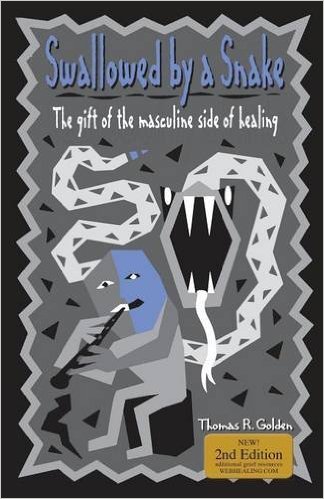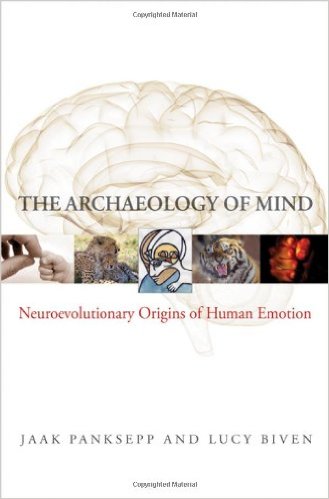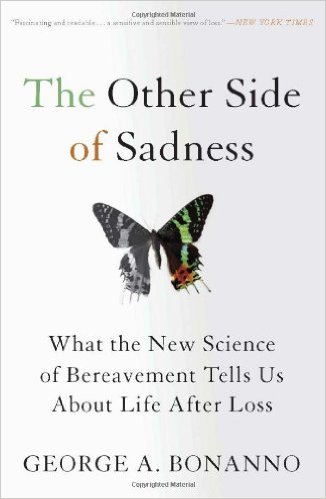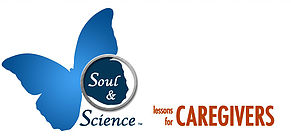BOOKS

Swallowed by a Snake: The Gift of the Masculine Side of Healing
―Thomas Golden, LCSW, 2010
 Swallowed by a Snake is a book for men and women about the masculine side of healing from loss. Discover new and powerful ways to heal. How the genders differ in their healing. Greater understanding between partners. Examples of successful transformation of loss. New ways to understand your grief. Ways the individual’s loss can impact the entire family. Swallowed by a Snake is meant to be a map and a guide through the experience of loss. It will help you move through the pain of loss and into a place of healing and transformation.
Swallowed by a Snake is a book for men and women about the masculine side of healing from loss. Discover new and powerful ways to heal. How the genders differ in their healing. Greater understanding between partners. Examples of successful transformation of loss. New ways to understand your grief. Ways the individual’s loss can impact the entire family. Swallowed by a Snake is meant to be a map and a guide through the experience of loss. It will help you move through the pain of loss and into a place of healing and transformation.
The Archaeology of Mind: Neuro-evolutionary Origins of Human Emotions
―Jaak Panksepp, Ph.D, 2012
 A look at the seven emotional systems of the brain by the researcher who discovered them.
A look at the seven emotional systems of the brain by the researcher who discovered them.
What makes us happy? What makes us sad? How do we come to feel a sense of enthusiasm? What fills us with lust, anger, fear, or tenderness? Traditional behavioral and cognitive neuroscience have yet to provide satisfactory answers. The Archaeology of Mind presents an affective neuroscience approach―which takes into consideration basic mental processes, brain functions, and emotional behaviors that all mammals share―to locate the neural mechanisms of emotional expression. It reveals―for the first time―the deep neural sources of our values and basic emotional feelings.
This book elaborates on the seven emotional systems that explain how we live and behave. These systems originate in deep areas of the brain that are remarkably similar across all mammalian species. When they are disrupted, we find the origins of emotional disorders:
– SEEKING: how the brain generates a euphoric and expectant response
– FEAR: how the brain responds to the threat of physical danger and death
– RAGE: sources of irritation and fury in the brain
– LUST: how sexual desire and attachments are elaborated in the brain
– CARE: sources of maternal nurturance
– GRIEF: sources of non-sexual attachments
– PLAY: how the brain generates joyous, rough-and-tumble interactions
– SELF: a hypothesis explaining how affects might be elaborated in the brain
The book offers an evidence-based evolutionary taxonomy of emotions and affects and, as such, a brand-new clinical paradigm for treating psychiatric disorders in clinical practice.
The Other Side of Sadness: What the New Science of Bereavement Tells Us About Life After Loss
– George A. Bonanno Ph.D. , 2010
 We tend to understand grief as a predictable five-stage process of denial, anger, bargaining, depression, and acceptance. But in The Other Side of Sadness, George Bonanno shows that our conventional model discounts our capacity for resilience. In fact, he reveals that we are already hardwired to deal with our losses efficiently—not by graduating through static phases. Weaving in explorations of mourning rituals and the universal experiences of the death of a parent or child, Bonanno examines how our inborn emotions—anger and denial, but also relief and joy—help us deal effectively with loss. And grieving goes beyond mere sadness: it can deepen interpersonal connections and often involves positive experiences. In the end, mourning is not predictable, but incredibly sophisticated. Combining personal anecdotes and original research, The Other Side of Sadness is a must-read for those going through the death of a loved one, mental health professionals, and readers interested in neuroscience and positive psychology.―from the Prelude
We tend to understand grief as a predictable five-stage process of denial, anger, bargaining, depression, and acceptance. But in The Other Side of Sadness, George Bonanno shows that our conventional model discounts our capacity for resilience. In fact, he reveals that we are already hardwired to deal with our losses efficiently—not by graduating through static phases. Weaving in explorations of mourning rituals and the universal experiences of the death of a parent or child, Bonanno examines how our inborn emotions—anger and denial, but also relief and joy—help us deal effectively with loss. And grieving goes beyond mere sadness: it can deepen interpersonal connections and often involves positive experiences. In the end, mourning is not predictable, but incredibly sophisticated. Combining personal anecdotes and original research, The Other Side of Sadness is a must-read for those going through the death of a loved one, mental health professionals, and readers interested in neuroscience and positive psychology.―from the Prelude
The word caregiver typically suggests someone doing all the giving for a frail, physically or mentally challenged, or aging person who is doing all the receiving. Marty Richards proposes a rebalanced approach of “caresharing.” From this perspective, the “cared for” and the “carer” share a deep sense of connection. Each has strengths and resources. Each can teach the other. Each can share in grief, hope, love and wisdom.
Richards shows you how to move from independent caregiving to interdependent caregiving by engaging the spiritual and emotional aspects of caring for a loved one. Whether you are a daughter or son, a husband or wife, a sibling, long-term partner or good friend, Caresharingoffers a multilayered, reciprocal process that will help you keep your spirit―and your loved one’s spirit―alive in challenging times.
Sharing Wisdom: What the Frail Teach the Well
Sharing Roles: Reinventing Family Roles in Sharing Care
Sharing “Soul to Soul”: A Special Relationship with People with Dementia
Sharing Grief: Dealing with the Little Losses and the Big Ones
Sharing Forgiveness: A Key Spiritual Journey
Sharing Hope and Heart: An Active Process One Step at a Time
